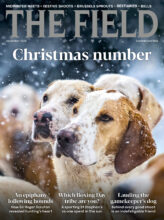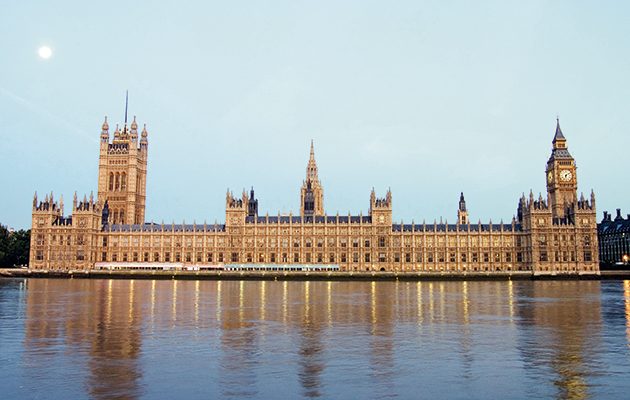Whether you are fisherman, farmer, foxhunter or forester, make your vote count for the countryside on June 8. Vote Conservative
Britain is headed for the polls and we must make the rural vote count. Whether you are a farmer, fisherman or foxhunter, who will really stand up for the countryside in government? Simon Hart MP is clear. The country needs the Conservatives.
GENERAL ELECTION 2017
I was on the train between Newport and Swindon the day after the recess when the news came in. General Election, June 2017. Unquestionably the best-kept political secret of all time. The expectations seem to be for an increased Conservative majority backed by a nation that sympathises with the PM’s call for a decent mandate to carry us through the next few turbulent months and is increasingly unable to see Jeremy Corbyn as a credible alternative. But polls are a snapshot of opinion on a certain day, not a prediction of a future result.
As was the case in 2001/5/10/15 and now ’17, the rural vote has much to consider. Who will stand up for rural communities? Everyone will say they do, some might even mean it but before I entered Parliament I wanted to know that it was in the blood, that candidates knew and understood that this quirky world of ours is what helps define our nation. Now that I am on the inside I can see with much greater clarity who has our interests at heart, not in a swivel-eyed way but in the context of the country we really want to be.
I argue that my party has consistently stood up for the countryside, shooting, hunting and much more, often in the face of criticism or social media synthetic outrage. We don’t always get it right. It doesn’t always look as if we are as robust as we should be. But that doesn’t mean we don’t strive passionately for the right outcomes. From the start of David Cameron’s premiership he was clear about the party’s support for country sports. One of his first moves was to withdraw the new game-farming regulations, which were rewritten and came into force in a much more practical form.
GUN CONTROL AND LICENSES
Both Cameron and Theresa May as Home Secretary rejected calls for “full cost recovery” for gun licences, which would have seen the cost of certificates rocket. They argued that the then licensing system was outdated and inefficient and it was wrong to ask gun owners to pay for the failings of bureaucracy. Crucially, they rejected calls for further gun control legislation following the horrific murder of 12 people by licensed gun owner Derrick Bird in Cumbria.
They also inherited the Lead Ammunition Group, set up by Labour’s Hilary Benn at the behest of then RSPB director Mark Avery. That group met for six interminable years to produce its report, later rejected by the members from the shooting community, including the Countryside Alliance and GWCT. Their sterling work and the good sense of Cameron meant that the report’s recommendation to ban lead altogether was rejected. Meanwhile, the Government introduced the badger cull trials in England, needed to tackle the scourge of bTB in the national cattle herd. The policy, like most involving wild animals, was immediately branded “controversial” but has proved anything but with the huge majority of the population who remain largely unmoved by the squeals of the animal-rights movement.
In 2015, the focus turned from clearing up the mess left by Labour to delivering improvements, where possible, for the countryside. Badger culling has been extended to more areas and licences for the control of buzzards have been issued, although it did need a brave legal challenge by the National Gamekeepers’ Organisation to help cement the proper process of applications.
Elsewhere, the new Policing and Crime Act, shepherded through Parliament by Home Office Minister Brandon Lewis, contains improvements to firearms legislation that have been sought for nearly a decade and a significant change to the legislation on face coverings and their removal by police officers. As we all know, balaclavas and other face coverings are used by animal-rights extremists both to intimidate and to avoid identification. Officers on the ground will now be able to order their removal.
THE HUNTING ACT
So what about the Hunting Act? After the 2015 election, Cameron probed the issue by suggesting amendments rather than repeal. When the SNP reversed its previously stated position not to vote on legislation that does not affect Scotland, it was clear we didn’t have the numbers we needed. However, it was right to put Nicola Sturgeon’s personal commitment not to interfere with hunting in England and Wales to the test and to gauge the reaction of our colleagues in the process.
Nor should we forget that despite a manifesto commitment to allow a vote and a majority of 179 the Labour government did not deliver a ban on hunting in the 1997 parliament. It took another manifesto commitment and a majority of 166 in 2001 before the Hunting Act was passed in 2004. Hunting remains a hugely controversial issue and repeal is never going to be simple or easily achievable. However, the prospect of a significant Conservative majority after the election on 8 June could change everything.
So whether we are remainers or Brexiters, fishermen or foxhunters, farmers or foresters, whether we drive through the countryside once a year or toil away daily in its heart we must all ask ourselves the same question. Who is really on our side when it matters, Jeremy Corbyn or Theresa May?
At the time of writing, Simon Hart was Conservative Member of Parliament for Carmarthen West and South Pembrokeshire.





